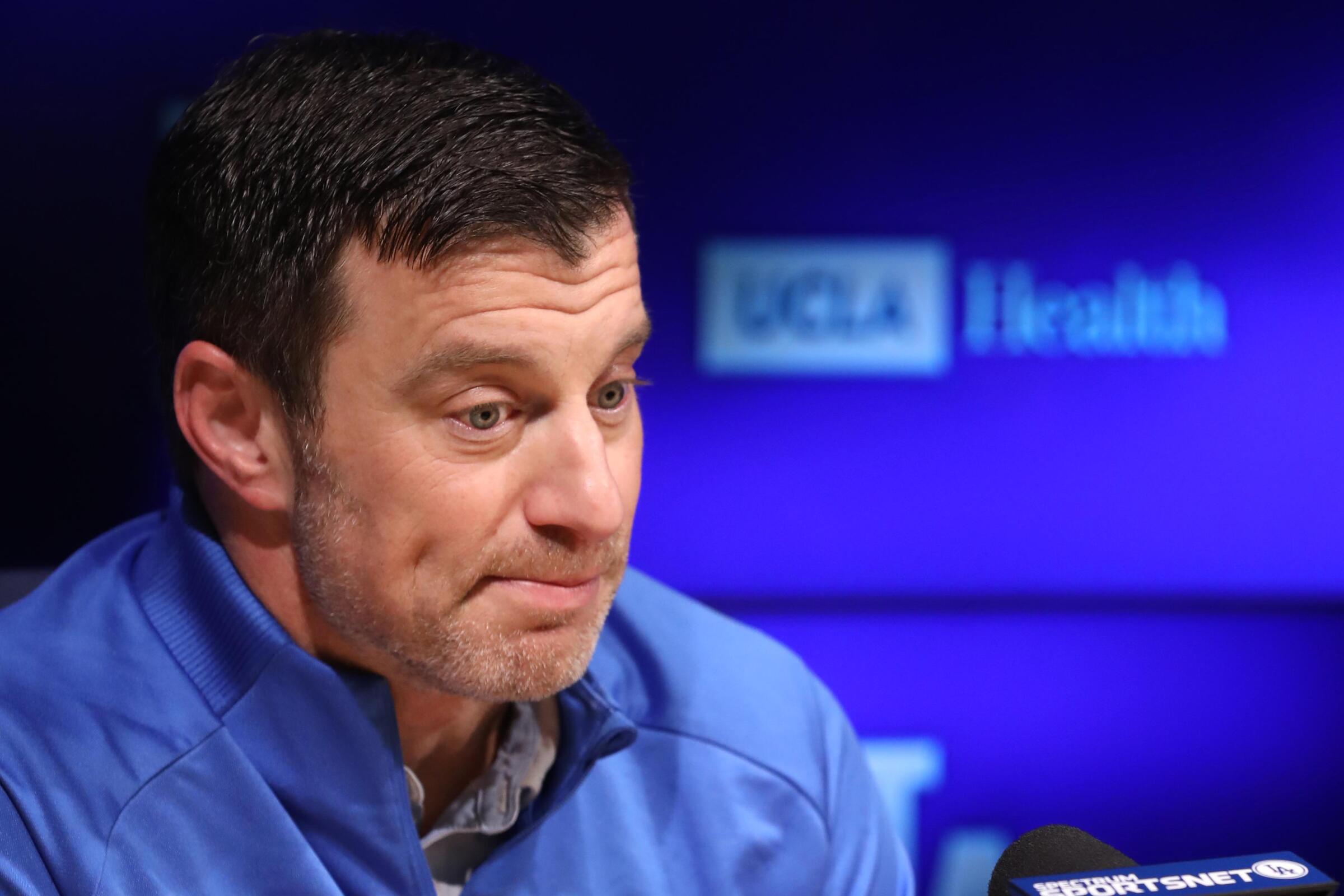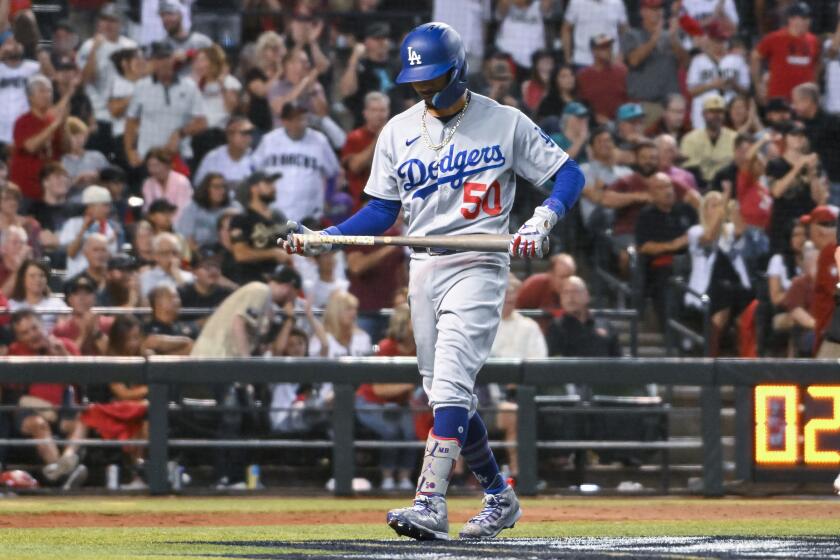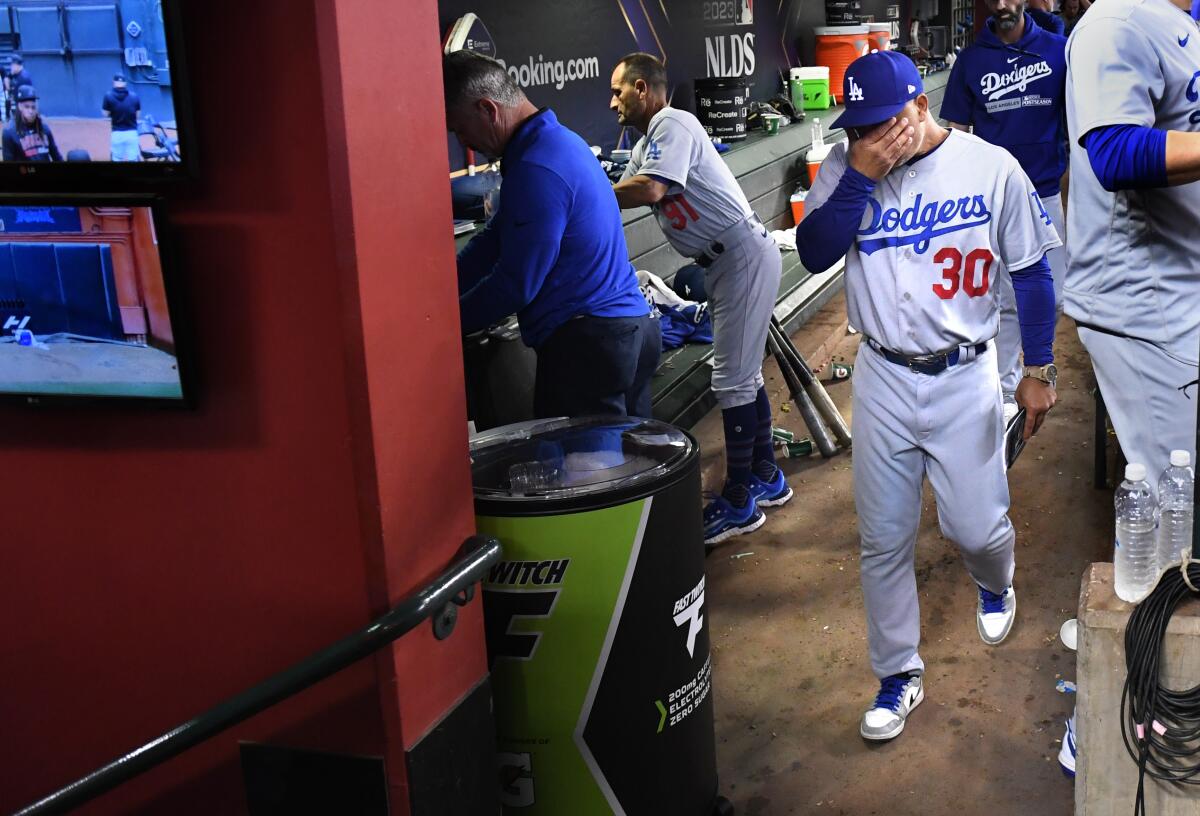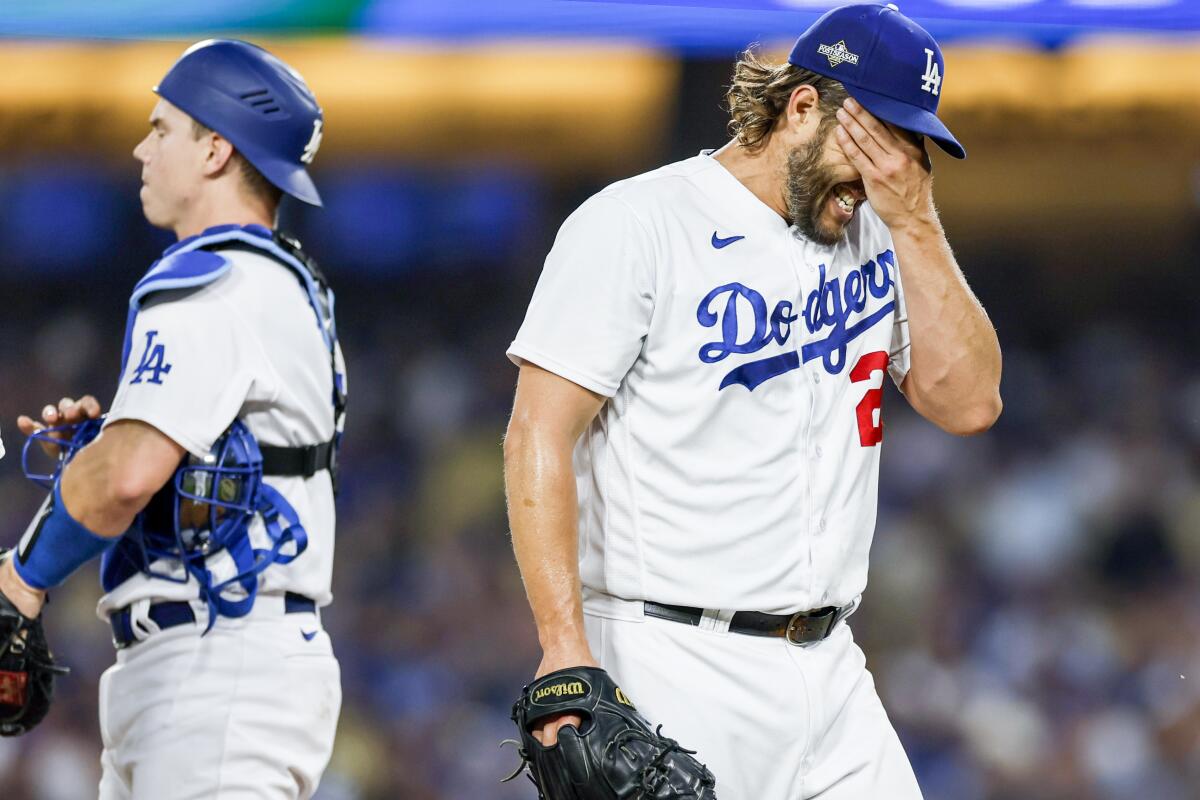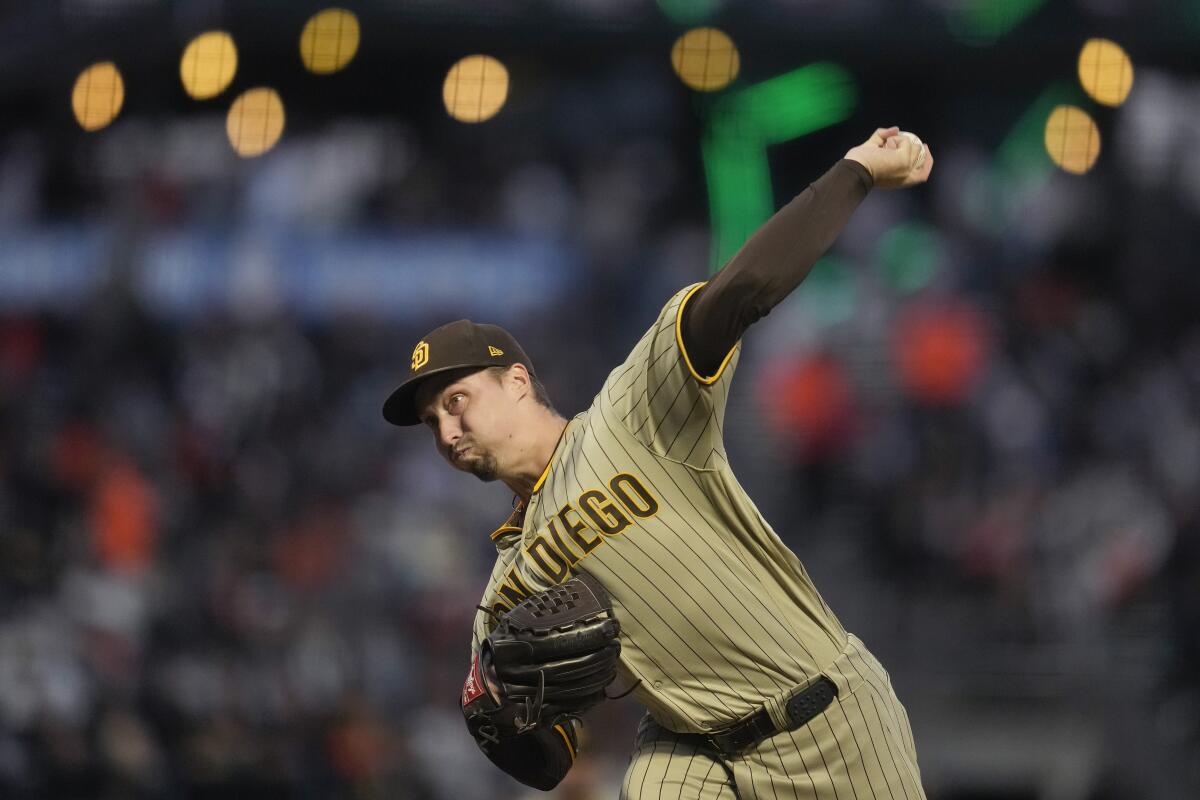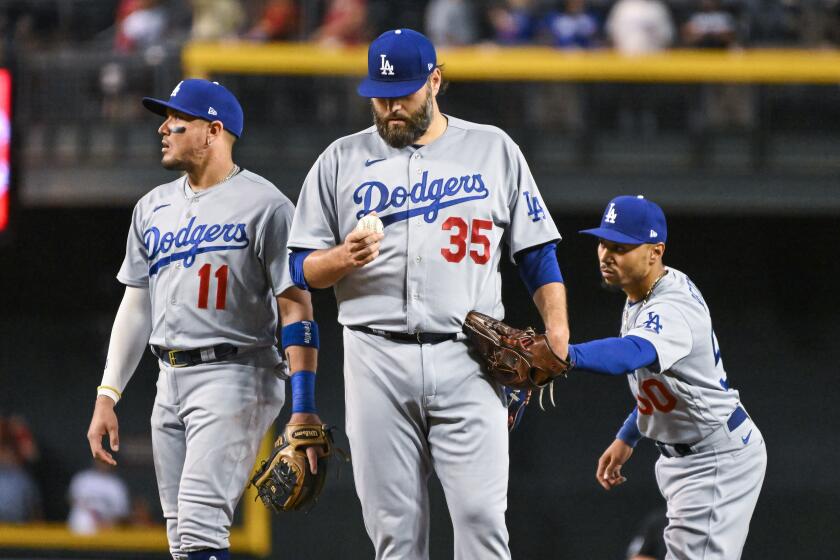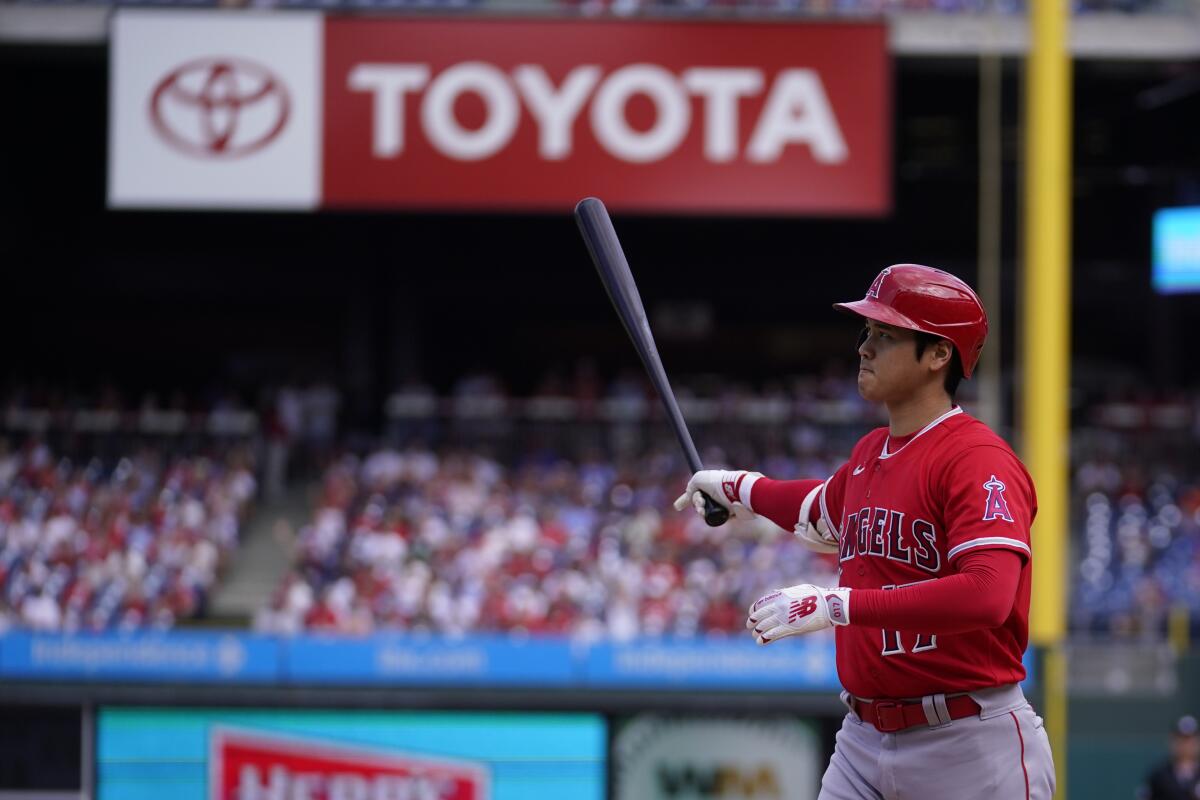The Dodgers have suffered back-to-back “organizational failures,” in Andrew Friedman’s words.
Based on what the club’s top executive said Tuesday, however, the Dodgers don’t seem to think they have any glaring organizational problems, either.
That was the tone Friedman struck during an end-of-season news conference alongside general manager Brandon Gomes at Dodger Stadium, bemoaning the club’s three-game sweep against the Arizona Diamondbacks last week — a second straight shock exit for a team well-accustomed to October disappointment — while offering few explanations or actionable offseason answers.
After another 100-win campaign and National League West division title — the fifth and eighth times, respectively, the Dodgers achieved those feats in his nine-year reign as president of baseball operations — Friedman insisted the club’s internal processes remain sound and that few sweeping changes are needed for the team this winter.
A few examples: Manager Dave Roberts will be back for his ninth season next year. The rest of the coaching staff is likely to remain intact. And the core of the front office doesn’t seem to be grappling with any existential crisis.
“When we look back to the regular season, obviously, there’s a lot to be proud of,” Friedman said.
After the franchise suffered its second straight NL Division Series elimination (both of them to teams that finished 16 games or more behind them in the division) and first postseason sweep in 17 years, however, there is plenty about the team’s recent October troubles to be bothered by as well.
“Our goal was to win 11 games in October and we didn’t win one,” Friedman said. “So we need to figure out what we can do differently and how to go about it.”
What that means — and the type of changes it could entail — will indeed be the key question of the Dodgers’ offseason.
Six days after their elimination to the Arizona Diamondbacks, though, Friedman and Gomes left any further specifics unclear.
“A lot of these things, it’s hard to know the answer to,” Friedman said of the Dodgers’ recent playoff problems, which include a 3-10 record in their last 13 postseason games, dating to 2021.
“There is an element that is October theater, and just what plays out on a daily and nightly basis. And there’s other things that we can do a better job on,” he added. “How to separate those, it’s incumbent upon us to figure out.”
As the Dodgers move on from another October disappointment, here’s a rundown of the key points from Tuesday’s news conference.
